11 Best Korean Sunscreens for a Glass Skin Finish, Reviewed and Tested
These elevated formulas are the global standard.
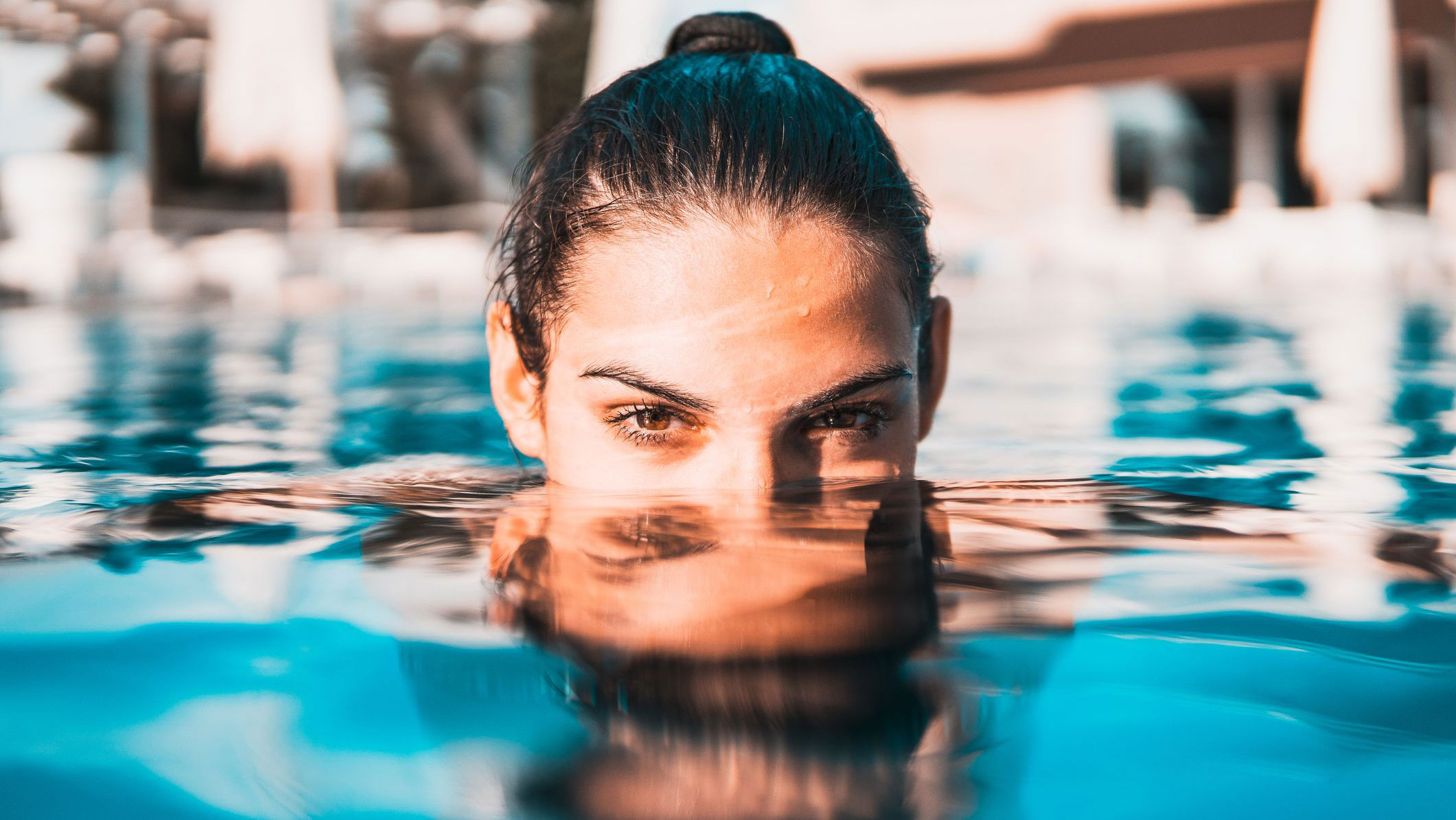
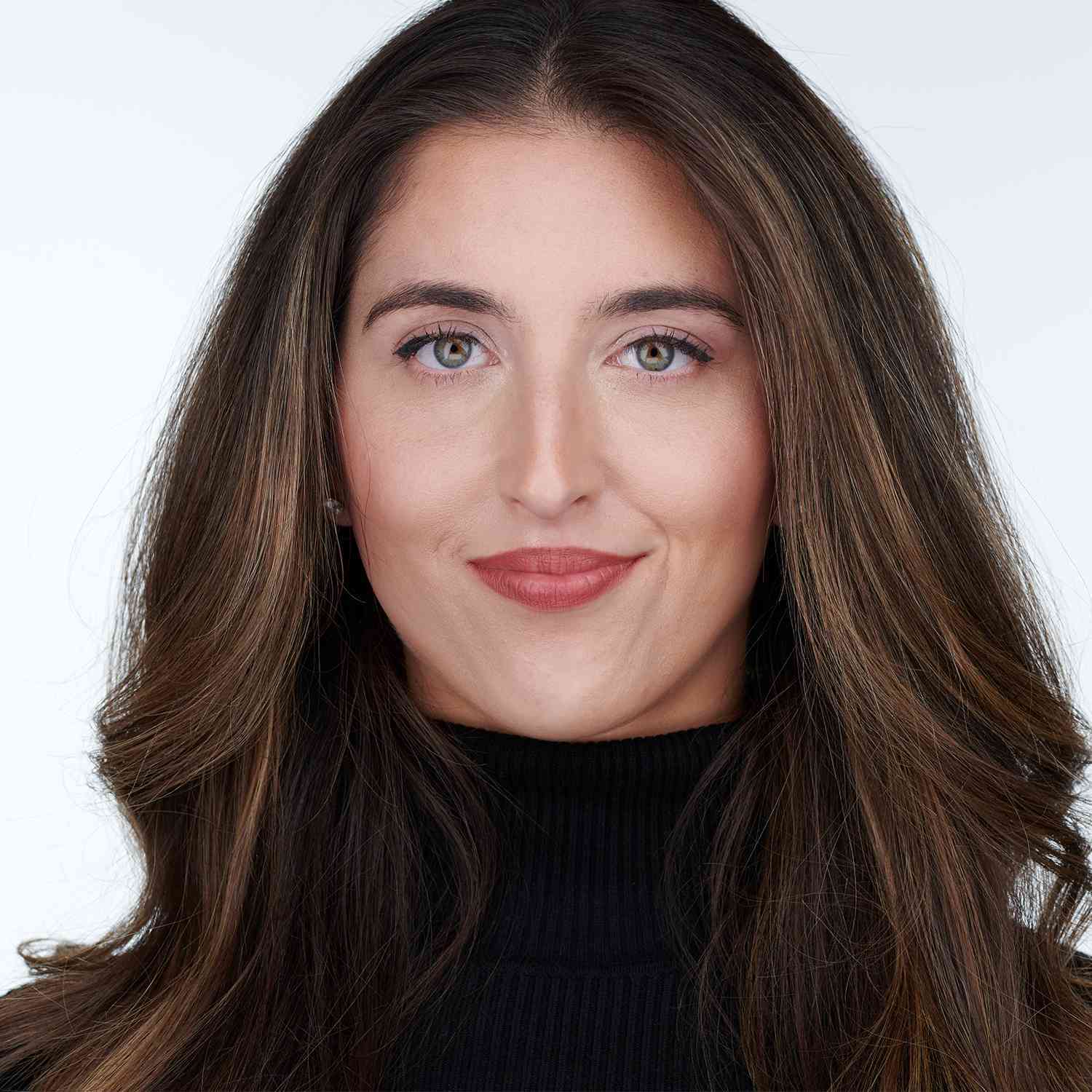
We’ve talked time and again about our love for K-beauty. We've waxed poetic about Korean skincare brands like Dr. Jart+, Innisfree, and COSRX, that pull their innovation, technology, and ingredients from South Korea. We've talked extensively about Korean moisturizers that emphasize skin barrier restoration, and obsessed over K-beauty sheet masks that make us glow in a few minutes flat. But we’d be remiss not to do a deep dive into the best Korean sunscreens, as they’re some of the most advanced, elegant formulas in the world.
“Korea is always pushing the boundaries on texture innovations and formula stability as the market is hyper-competitive and demanding,” Alicia Yoon, founder of the online K-beauty retailer Peach & Lily tells Marie Claire. The result of such progressive formulation? Lightweight, glow-giving sunscreens with advanced, UV-blocking filters that don’t leave a chalky white cast on the skin.
Ahead, we’ve compiled a comprehensive guide to the best Korean sunscreens of 2024, tailored to every skin type and concern—from dull skin craving a moisture boost to sensitive skin needing ultra-nourishing, gentle care. We also consulted with board-certified dermatologists Kristina Collins, M.D., and Mina Amin, M.D., along with Yoon, to break down the top ingredients and sunscreen filters to look for in Korean sunscreens.
Keep scrolling to discover (and shop) the 11 best Korean sunscreens 2025 that Marie Claire editors, dermatologists, and beauty lovers can't stop talking about. And don’t miss the FAQ section at the end, where we answer your biggest questions about Korean sunscreens, including how they differ from U.S. formulas and whether they’re truly "better."
Best Korean Sunscreens of 2024
- Best Overall Korean Sunscreen: Neogen Dermalogy Day-Light Protection Airy Sunscreen
- Best Glowy Korean Sunscreen: Innisfree Daily UV Defense Sunscreen Broad Spectrum SPF 36
- Best Reef-Safe Korean Sunscreen: COSRX Daily Spf 50 Vitamin E Sunscreen
- Best Mineral Korean Sunscreen: Dr.Jart+ Every Sun Day Mineral Sunscreen
- Best Brightening Korean Sunscreen: SOME BY MI V10 Hyal Air Fit Sunscreen
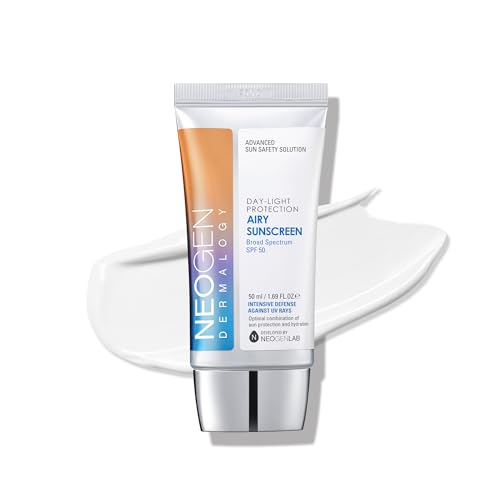
Neogen has rightfully earned its place as a staple in the Korean sunscreen scene, and it’s easy to see why when you try this formula. If you’re looking for SPF that feels like nothing on the skin, leaves zero white cast, and delivers broad-spectrum coverage (both UVA and UVB rays) plus antioxidant defense, this is your new go-to. The “airy” in its name isn't an exaggeration in the least—this sunscreen is ultra-lightweight and melts into your skin in seconds flat.
Key Ingredients: Octocrylene, homosalate, and avobenzone (chemical filters), hyaluronic acid (hydrating), aloe leaf extract (soothing), vitamin E (antioxidant)
Texture: Lotion
Type (chemical vs mineral): Chemical
SPF protection: 50
Benefits: Hydrates, soothes, provides antioxidant protection
What We Love: No white cast; wears well under makeup; imparts a subtle glow without greasiness
What We Don’t: Contains essential oils and added fragrance, which may be irritating to some
Review for MC: "As a beauty editor with perpetually dry, sometimes-dull skin, I'm always testing products that bring the hydration. Enter the Neogen Day-Light Protection Airy Sunscreen, which recently made its way into my regimen—and I’m mad it didn’t happen sooner. It feels more like a moisturizer than your typical sunscreen and absorbs instantly with the lightest touch. As for the finish, it leaves a natural, skin-like glow with just a hint of tackiness right after application that quickly dries down and makes for the perfect base for makeup." — Marisa Petrarca, Contributing Beauty Writer
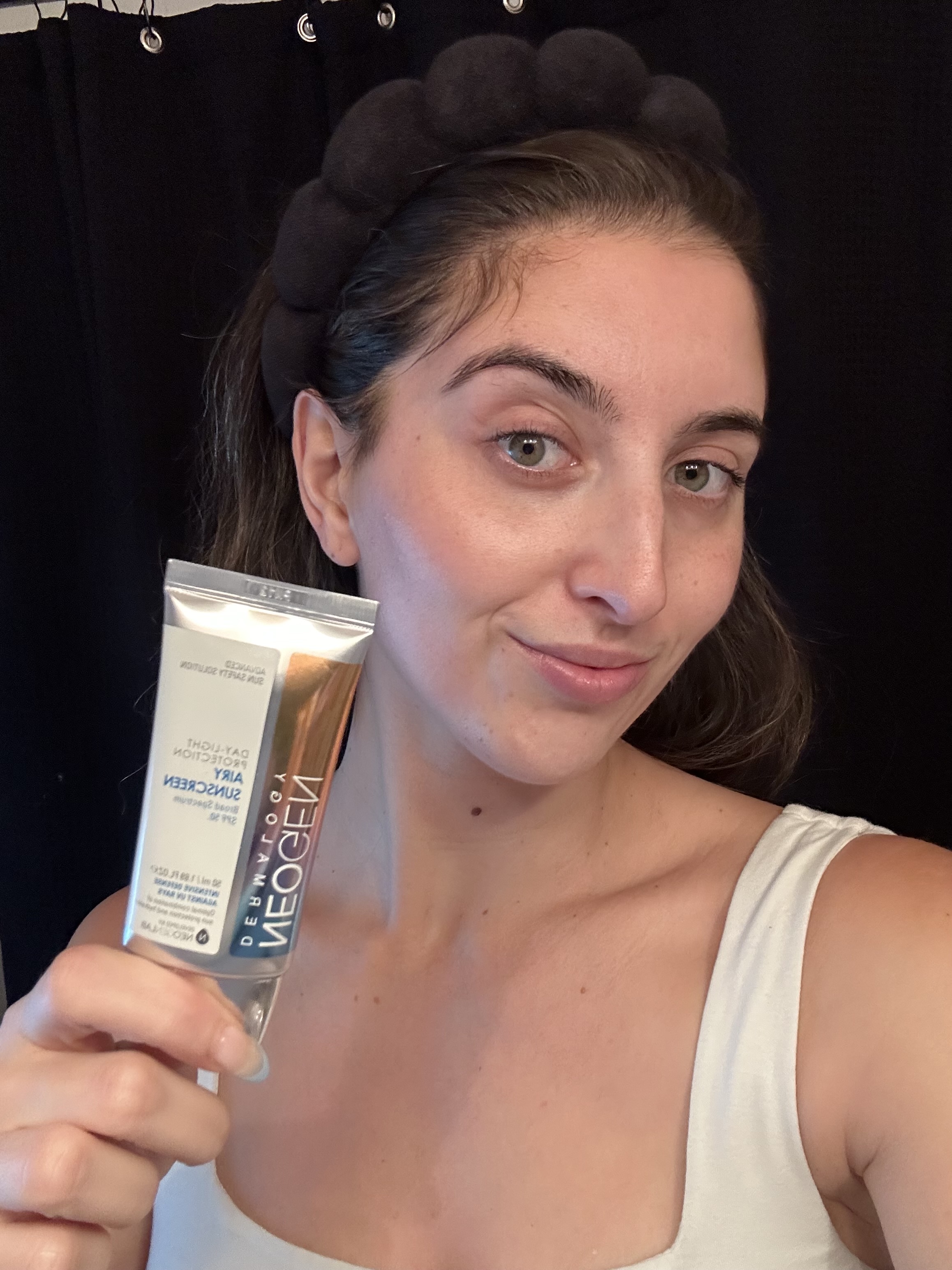
Marisa loves the Neogen Dermalogy Day-Light Protection Airy Sunscreen for its hydrating benefits and fast-absorbing texture.
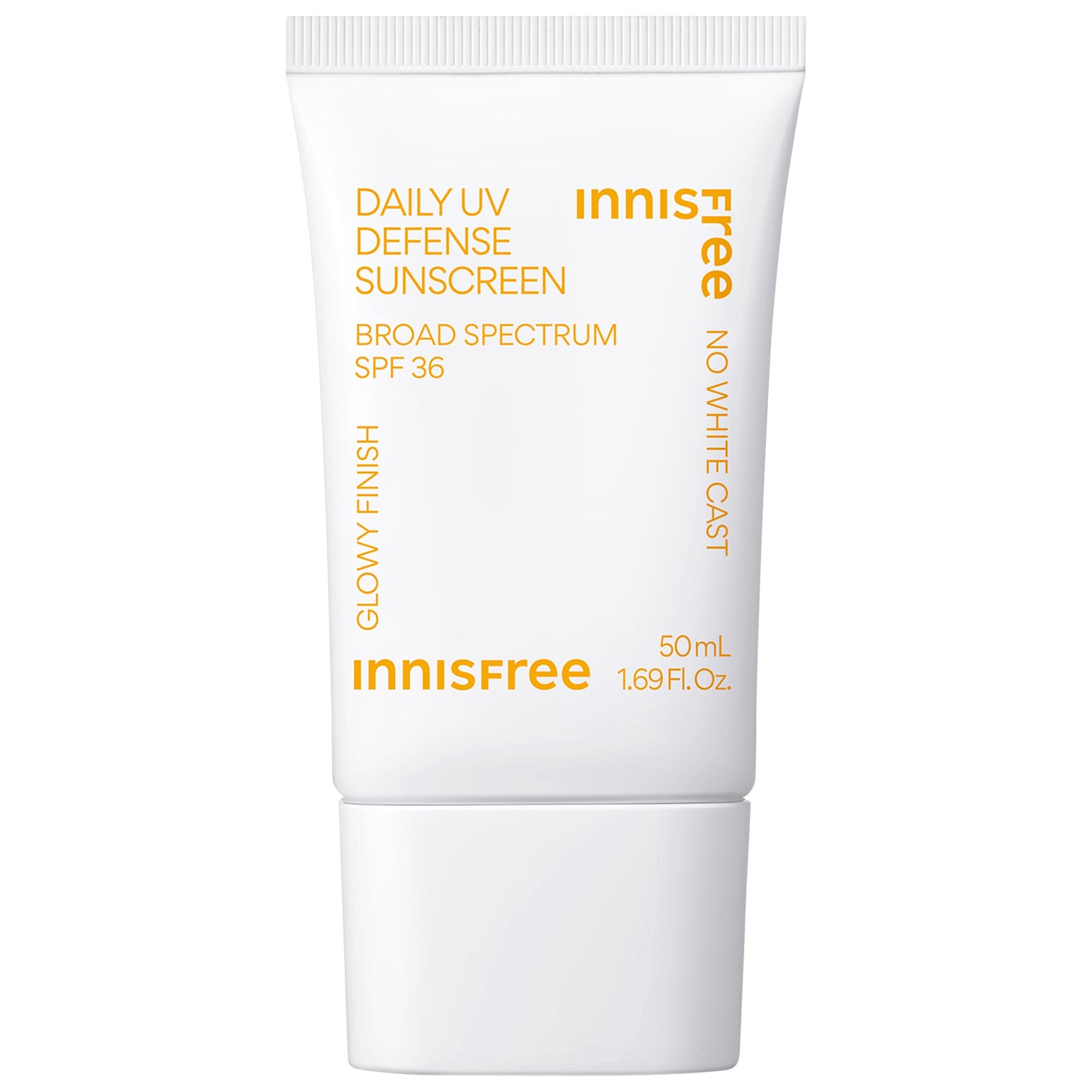
What sets Innisfree Daily UV Defense Invisible Broad Spectrum SPF 36 Sunscreen from the pack—besides the obvious (fast-absorbing, lightweight, white cast-free, and comfortable texture, which every sunscreen on this list offers)—is its glowy finish. It delivers just the right amount of SPF protection and is packed with soothing and hydrating ingredients that have won over fans across all skin types on social media and our very-picky-yet-discerning beauty editor, Samantha Holender.
Key Ingredients: Avobenzone, homosalate, octisolate (chemical filters), green tea extract (soothing), sunflower seed oil (hydrating), vitamin E (antioxidant)
Texture: Lotion
Type (chemical vs mineral): Chemical
SPF Protection: 36
Benefits: Hydrates, soothes, provides antioxidant protection
What We Love: Leaves a glowy finish; free of oxybenzone and octinoxate (which are harmful to marine life); most affordable option on our list
What We Don’t: Its glowy finish might not play well with oily skin types
Review for MC: "I have one skin goal: look as glowy as humanly possible. With that in mind, I have super sensitive skin, so switching up my sunscreen is risky business. That said, I've been using this SPF for quite some time now and haven't experienced any irritation or breakouts. The gentle formula takes a beat to rub in, but it feels silky on my skin, gives a gorgeous shine to my skin, and doubles as a makeup primer. I never experience any pilling either—it's my go-to for under makeup." — Samantha Holender, Beauty Editor
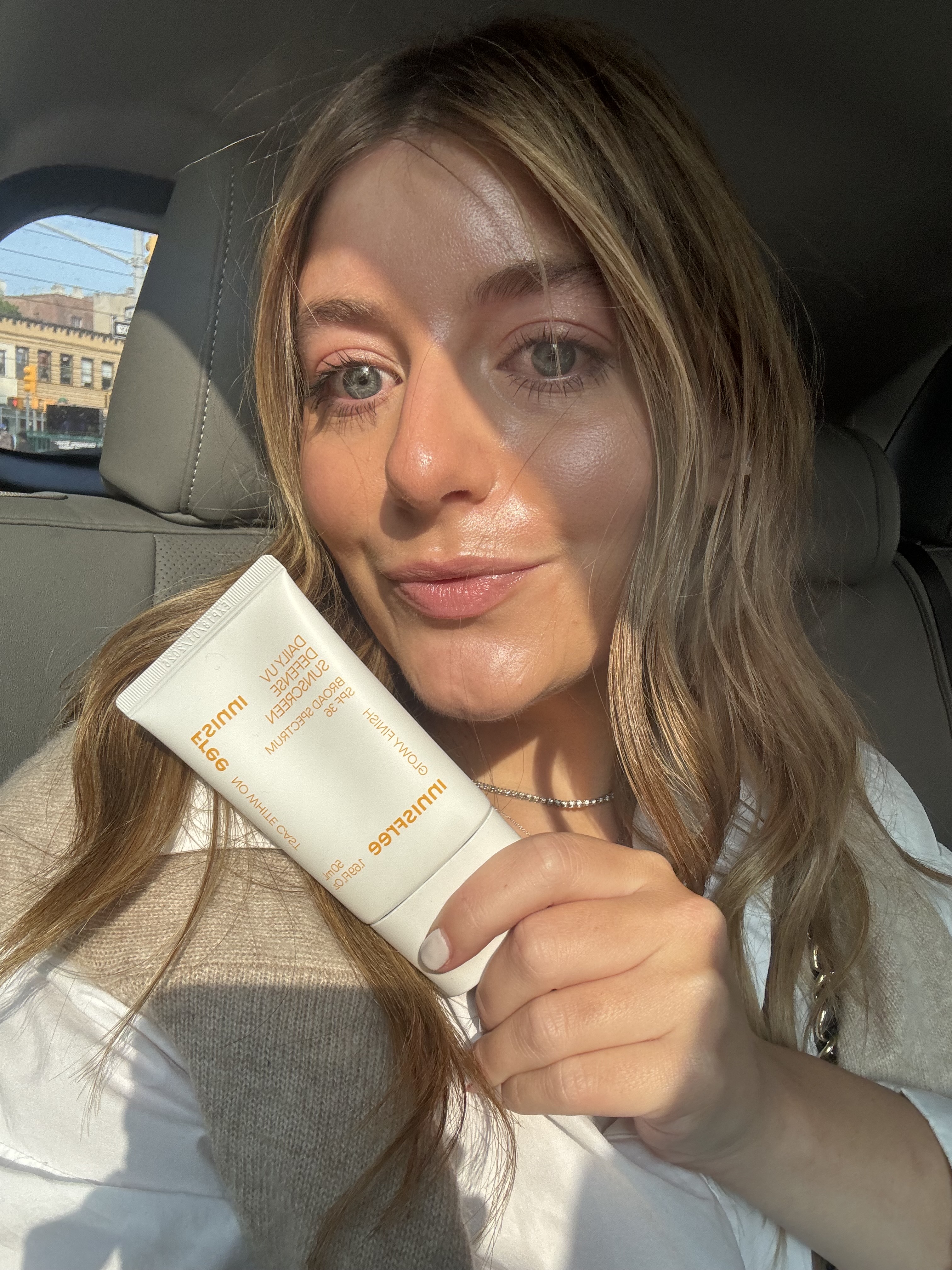
Samantha loves the glow-inducing benefits of the Innisfree Daily UV Defense Invisible Broad Spectrum SPF 36 Sunscreen.
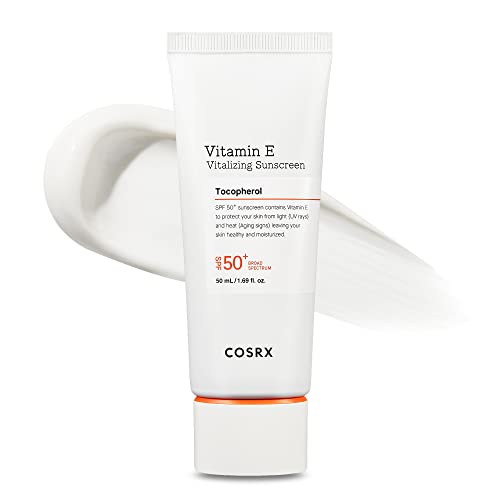
This Korean skincare brand is known for its intriguing (and super effective) snail essence, but its sunscreen (and other products in the line) are just as covetable. As you’ll spot on the front of this sunscreen's packaging, the standout ingredient—besides the usual lineup of chemical filters—is vitamin E. This ingredient powerhouse offers a slew of benefits, from shielding the skin against damage caused by free radicals to moisturizing and calming inflamed skin. Fans love how it feels weightless, leaves a semi-matte finish, and hydrates while providing serious protection.
Key Ingredients: Avobenzone, homosalate octocrylene, octisalate (chemical filters), vitamin E (antioxidant)
Texture: Lotion
Type (chemical vs mineral): Chemical
SPF Protection: 50+
Benefits: Antioxidant protection, hydrates, soothes
What We Love: Broad-spectrum protection; reef-friendly most affordable option on our list
What We Don’t: It smells the tiniest bit like men's cologne
Review for MC: "I'm so deep on the COSRX snail mucin bandwagon that it's practically a religion at this point. That devotion has led me to try (and fall for) so many more of the K-beauty brand's gems—including, you guessed it, the CORSRX Daily SPF 50 Vitamin E Vitalizing Sunscreen. This white cast-free, fast-absorbing formula checks all the boxes that even some of the most famous sunscreens miss: broad-spectrum and antioxidant protection (basically all you need to step out the door knowing your skin is safe), a semi-matte finish that makes your skin look like yours, just better, and it's reef-friendly for all your tropical getaways." — Marisa Petrarca, Contributing Beauty Writer
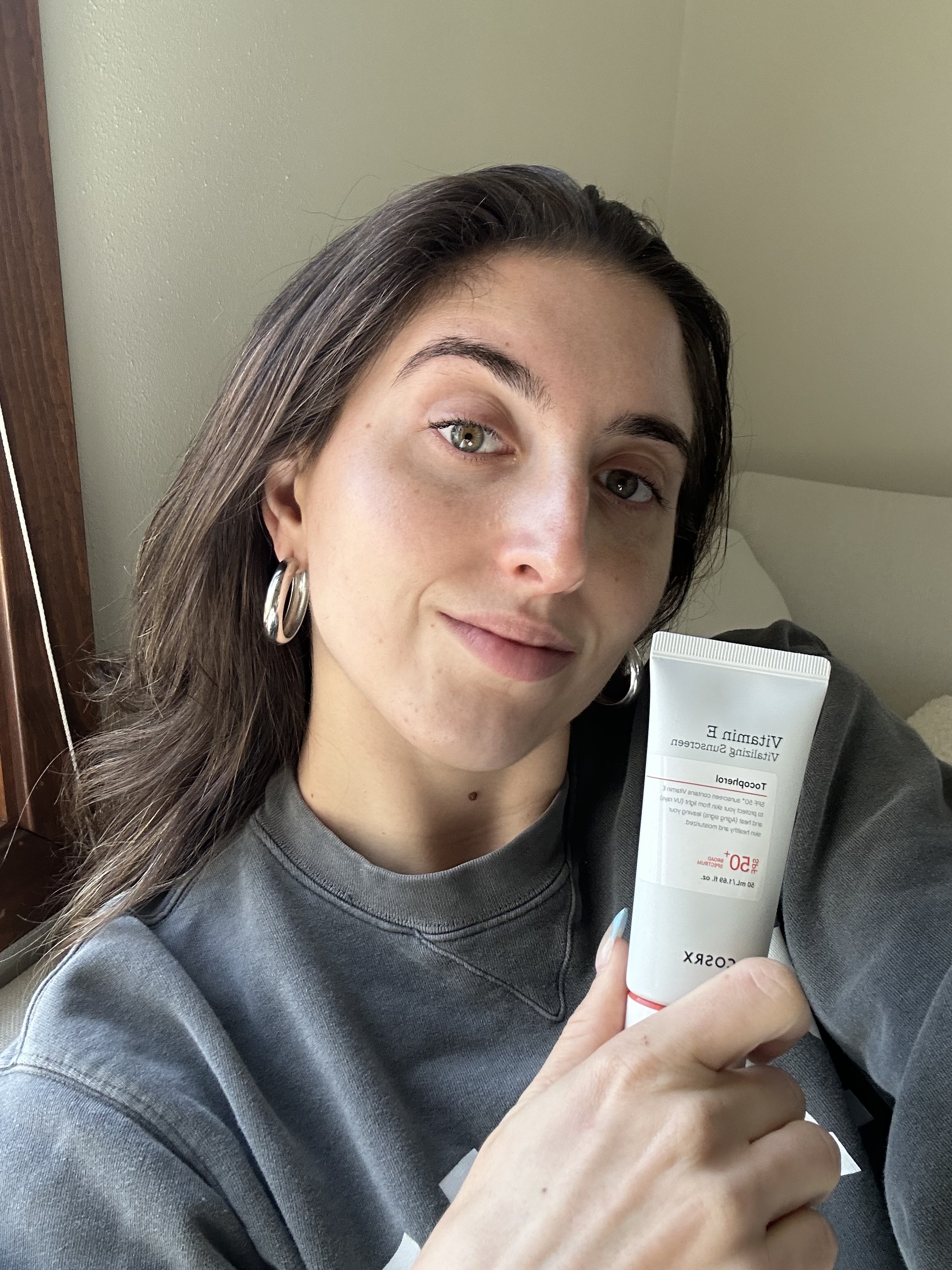
Marisa likes the semi-matte finish of COSRX's Daily Spf 50 Vitamin E Vitalizing Sunscreen.
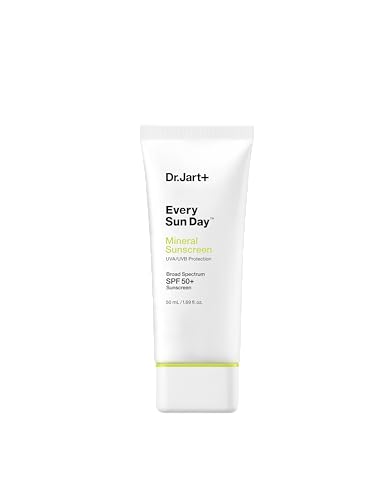
Mineral sunscreens (also known as physical sunscreens) work by creating a protective barrier on your skin’s surface that reflects UV rays, unlike chemical filters that absorb UV rays and convert them to heat. While mineral sunscreens are known to be harder to rub in, this one is different. It may take a tiny bit more effort to blend than a chemical sunscreen, but once it’s on, it’s completely undetectable and leaves a matte finish. And because it’s a physical sunscreen, it’s gentler on the skin, making it a great option for those with sensitive skin.
Key Ingredients: Zinc oxide and titanium dioxide (mineral filters), vitamin E (antioxidant)
Texture: Lotion
Type (chemical vs mineral): Mineral
SPF Protection: 50+
Benefits: Soothes and calms thanks to mineral filters, applies smoothly over makeup, leaves a matte finish
What We Love: More comfortable than your average mineral sunscreen; sensitive-skin-friendly; non-greasy texture
What We Don’t: Thick texture (though it does blend)
Review for MC: "Mineral sunscreens get a bad rap—they're thought to be goopy, greasy, and heavy. If I'm being honest, many mineral formulas deserve a negative connotation. Not this Dr. Jart+ formula though. It rubs into my skin with ease and, within 30 seconds, is completely invisible. It has a more natural finish on the skin (as opposed to glowy or matte) and leaves a tacky texture that grips onto makeup. Plus, there's a nice citrus scent that always reminds me of days at the beach." — Samantha Holender, Beauty Editor
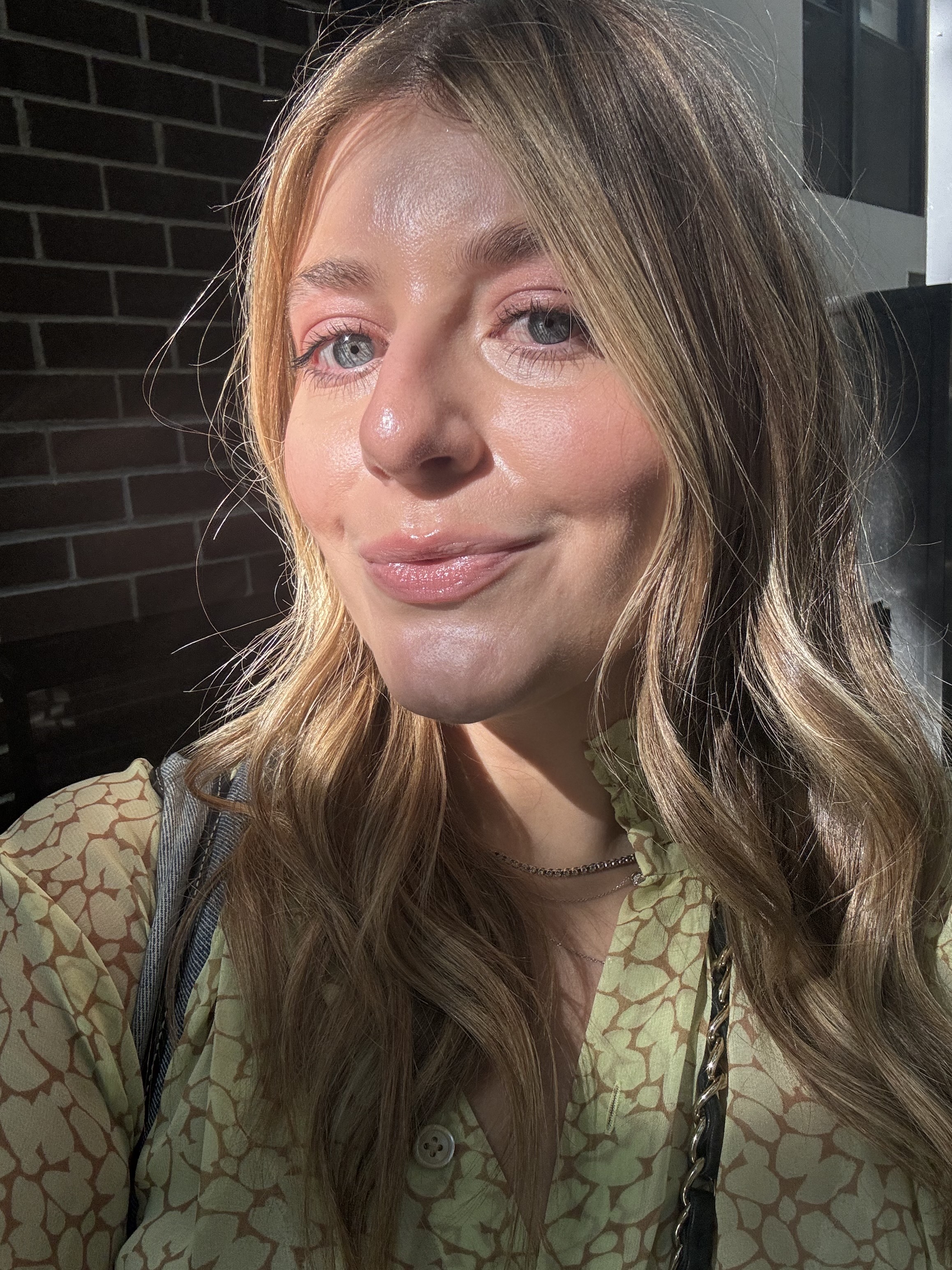
Samantha frequently relies on the Dr.Jart+ Every Sun Day Mineral Sunscreen SPF 50+ as her makeup base.
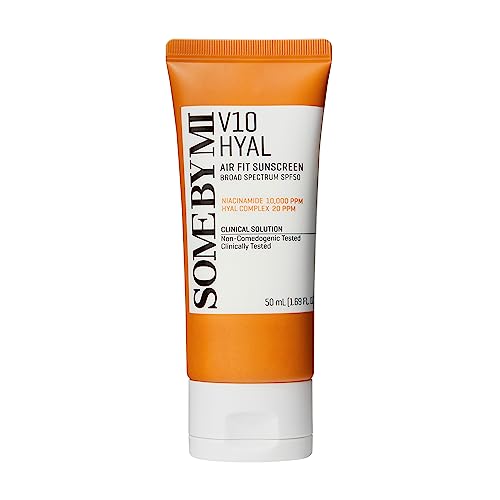
Found: a chemical sunscreen that won't leave your eyes stinging or streaming with tears when you apply it to your eyelids (which, by the way, you absolutely should be doing). Even though it’s a chemical formula, it has the soothing, creamy, lotion-like texture you might expect from a physical sunscreen. It leaves skin with a glowing finish and even helps brighten over time, thanks to niacinamide and sodium ascorbyl phosphate (the salt form of vitamin C that brightens just like the pure version of the ingredient).
Key Ingredients: Homosalate, octocrylene, octisalate, and avobenzone (chemical filters), niacinamide (anti-acne, brightening, and firming), hyaluronic acid (hydrating), vitamin C (brightening)
Texture: Cream
Type (chemical vs mineral): Chemical
SPF Protection: 50
Benefits: Hydrates, brightens, soothes
What We Love: Doesn't irritate eyes, leaves a glowy finish, packed with skin-loving vitamins
What We Don’t: May not be ideal for ultra-sensitive skin types due to added fragrance
Review for MC: "For the record, my skin isn’t always sensitive, but occasionally, I notice it flares up—sometimes after a professional skin-care treatment or during a breakout. This sunscreen is my go-to during those moments when my skin could use some TLC. It uses soothing ingredients like panthenol and cica extract, hydrating ones like hyaluronic acid and glycerin, and niacinamide for its anti-inflammatory, anti-acne, and brightening benefits; the perfect combo when my skin needs a little extra love. Plus, I love that it feels as nourishing and rich as a physical sunscreen but, true to its chemical formula, absorbs like a dream." — Marisa Petrarca, Contributing Beauty Writer
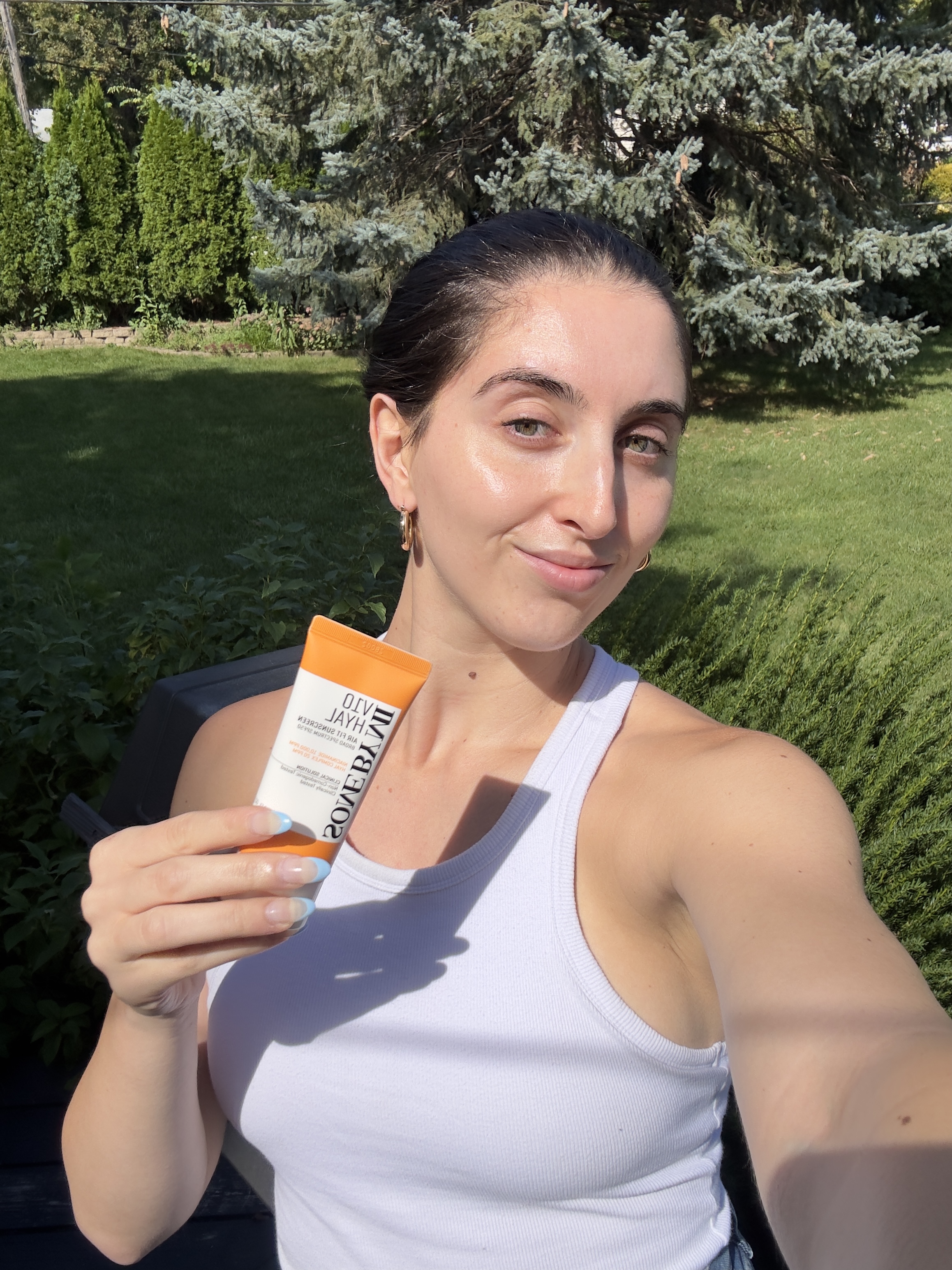
Marisa loves the nourishing texture and radiant finish that the Some by Mi V10 Hyal Air Fit Sunscreen gives her skin.
Other Korean Sunscreen We Love
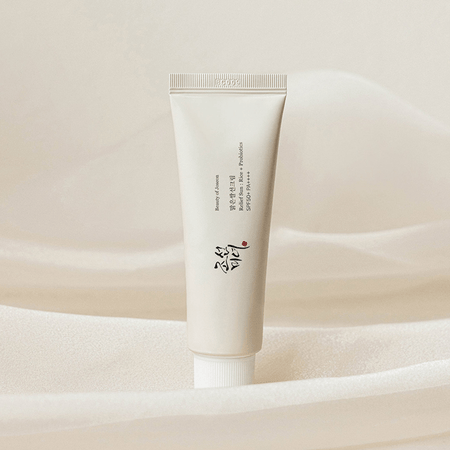
Dr. Collins gives the Beauty of Joseon (pronounced "JOH-sun") Relief Sun Sunscreen her stamp of approval. She describes it as "really popular" for its TikTok virality and microbiome-friendly formula but loves it for dry and sensitive skin (though all skin types will crave it). If you've spent time on the beauty side of TikTok, you've likely seen content creators rave about it before, comparing its texture to more of a luxurious moisturizer than a sunscreen. But beyond the way it looks and feels, it's formulated with advanced chemical filters that aren't yet FDA-approved in the United States. That said, you'll have to look internationally to get your hands on it, but that's part of its appeal; it’s a little elusive, and everyone’s obsessed.
Key Ingredients: Uvinul A Plus, ethylhexyl triazone, Tinosorb M, and Uvasorb HEB (chemical filters), niacinamide (anti-acne, brightening, and firming), rice extract (supports the skin's microbiome)
Texture: Lotion
Type (chemical vs mineral): Chemical
SPF Protection: 50+
Benefits: Hydrates, soothes, brightens
What We Love: TikTok-viral; leaves a glowy finish; has the highest SPF rating offered in Korea (SPF 50+)
What We Don’t: Not available at major U.S. retailers (yet) due to its non-FDA-approved filters
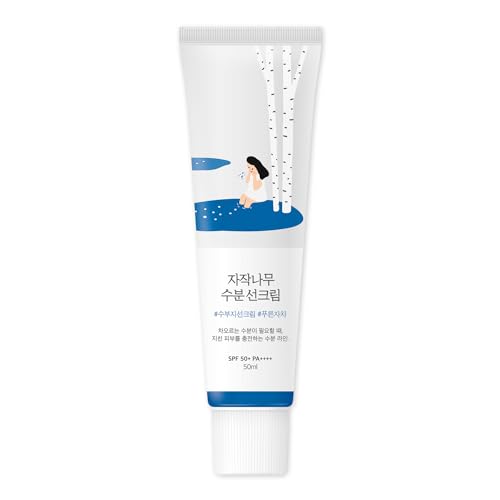
Round Lab Birch Juice Moisturizing Sunscreen is as hydrating as it is aesthetically pleasing. The front of the packaging shows a woman standing by a white birch tree—a nod to one of the brand's hero ingredients, birch juice. The ingredient is known (and loved) for its hydrating, soothing, and antioxidant-rich benefits, and—surprise, surprise—it takes center stage in this formula, backed by moisture-boosting hyaluronic acid and brightening niacinamide. The silky-smooth, lightweight texture is the cherry on top of this cult-favorite sunscreen, which has earned thousands of five-star ratings on Amazon.
Key Ingredients: Diethylamino hydroxybenzoyl hexyl benzoate (chemical filters), hyaluronic acid (hydrating), birch juice (hydrating and soothing), niacinamide (anti-acne, brightening, and firming)
Texture: Cream
Type (chemical vs mineral): Chemical
SPF Protection: 50+ PA++++
Benefits: Hydrates, brightens, soothes
What We Love: Doubles as a moisturizer—no need for an extra step; lightens dark spots; aesthetically pleasing packaging
What We Don’t: There are many counterfeits floating around online since it's not yet sold at major U.S. retailers
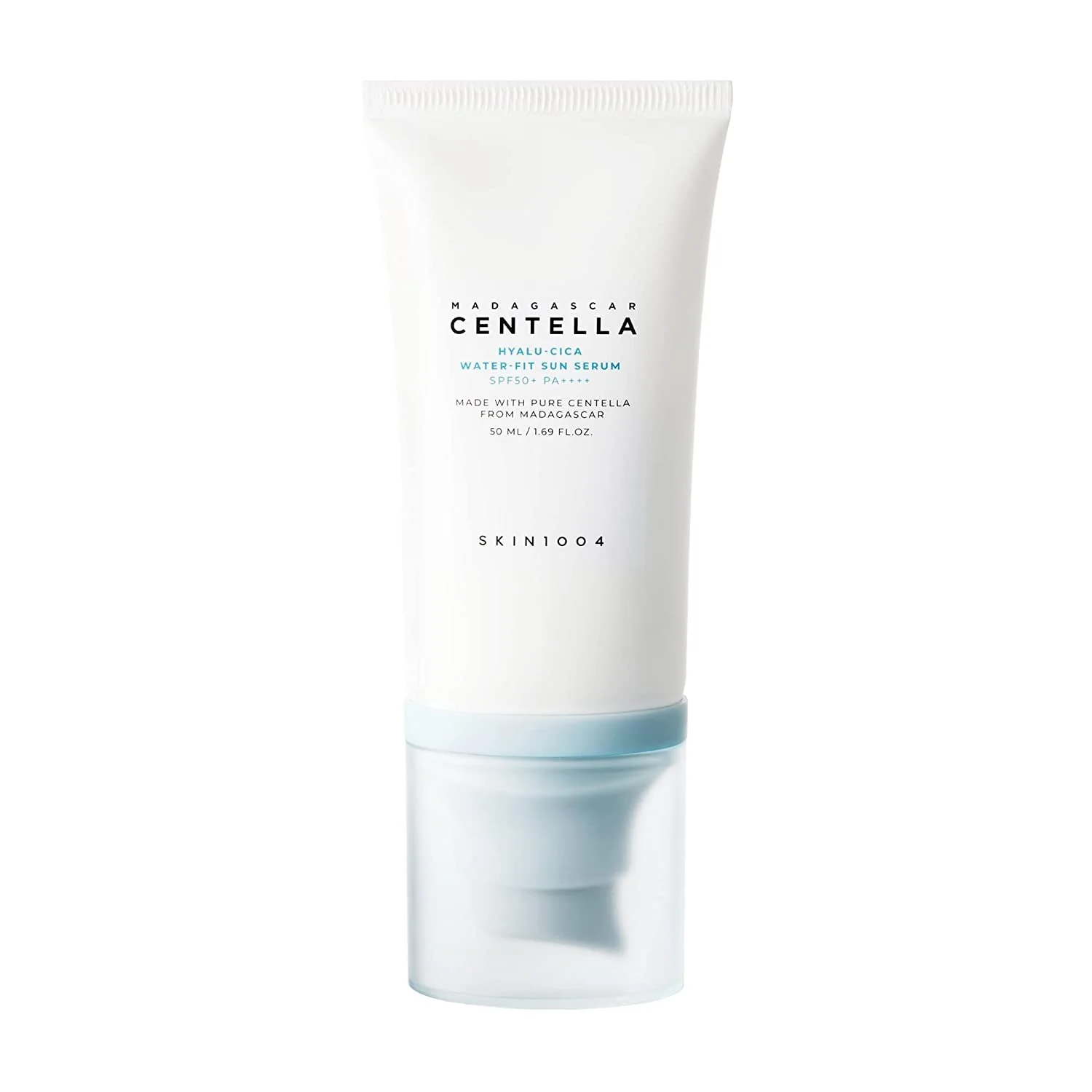
If traditional cream or lotion sunscreens aren't your thing, the SKIN1004 Hyalu-Cica Water-Fit Sun Serum SPF 50+ PA++++ could be your new favorite. It has a lightweight, watery texture that feels more like a hydrating serum than a sunscreen, applies completely clear, and is packed with soothing and hydrating ingredients to help counteract any sensitivities to chemical filters. Countless reviewers have dubbed it their "holy grail," and they praise how well it works on all skin types, even oily, combination, and acne-prone skin.
Key Ingredients: Diethylamino hydroxybenzoyl hexyl benzoate, ethylhexyl triazone, methylene bis-benzotriazolyl tetramethylbutylphenol, diethylhexyl butamido triazone (chemical filters), niacinamide (anti-acne, brightening, and firming), centella asiatica extract (soothing), hyaluronic acid (hydrating)
Texture: Serum-like cream
Type (chemical vs mineral): Chemical
SPF Protection: 50+ PA++++
Benefits: Hydrates, soothes, protects from free radicals with antioxidants
What We Love: Lightweight serum-y texture; fast-absorbing; oily skin-approved
What We Don’t: Some reviewers mentioned that it made their eyes sting
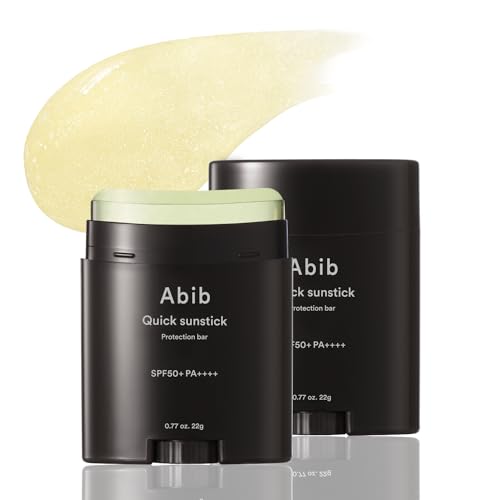
Sunscreen sticks might not sound all that appealing (are you picturing those greasy ones from years ago, too?), but the Abib Quick Sunstick Protection Bar is here to change your mind. Think of it as the anti-sunscreen stick: it applies completely clear—so a white cast isn’t even an option—feels weightless and non-sticky, and is perfect for touch-ups on your face and body. One Amazon reviewer compared its texture to Chapstick for how smoothly and comfortably it glides on.
As for its ingredients, standouts include a handful of soothers like aloe vera, cucumber extract, and green tea extract, plus hydrators such as glycerin and ceramides.
Key Ingredients: Octinoxate, octisalate, octocrylene, Uvinul A Plus, Tinosorb S (chemical filters), aloe vera, cucumber extract, green tea extract (soothing), glycerin and ceramides (hydrating)
Texture: Balm
Type (chemical vs mineral): Chemical
SPF Protection: 50+ PA++++
Benefits: Soothes; applies clear; hydrates
What We Love: Travel-friendly-and portable; easy to reapply; unscented (no added fragrance or essential oils); curved shape that's ideal for applying to facial contours
What We Don’t: Could potentially disrupt your makeup when reapplied over it
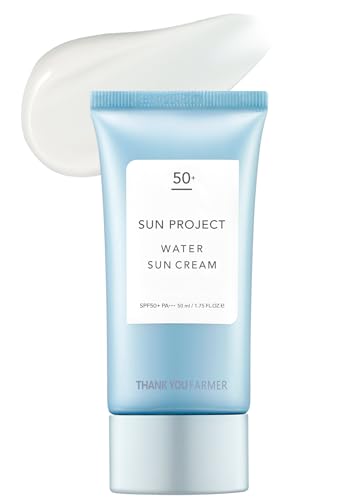
This sunscreen packs in as many skin-calming ingredients as it does SPF filters, proving it's as soothing as it is protective. Its lightweight, water-based texture feels more like a bonus layer of moisturizer that just so happens to offer SPF 50 protection—forget feeling like daily sunscreen's a chore; this one’s a treat to apply.
Key Ingredients: Octinoxate, homosalate, Uvinul A Plus, octocrylene (chemical filters), titanium dioxide (mineral filter), cica, aloe, and bamboo water (soothing), hyaluronic acid (hydrating)
Texture: Cream
Type (chemical vs mineral): Hybrid
SPF Protection: 50+
Benefits: Soothes; comprehensive sun protection thanks to hybrid formula; moisturizes
What We Love: Lightweight, water-based texture; packed with skin-calming ingredients
What We Don’t: Not reef-safe
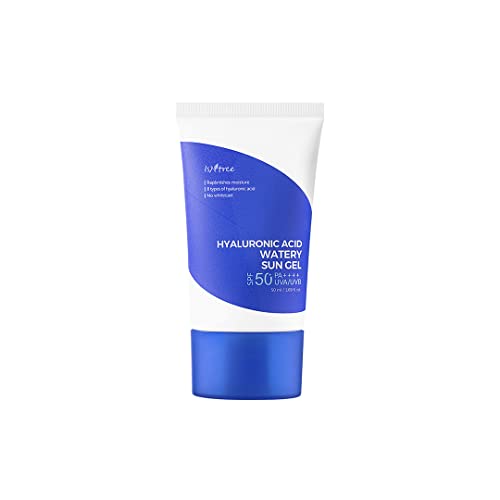
Dr. Collins recommends this fragrance-free sunscreen for its ingredient list, and we love it for that and how beautifully it sits under makeup (no pilling!). "This one has lots of active skincare ingredients including a powerful punch of hyaluronic acid, resulting in wrinkle reduction and dry skin relief," Dr. Collins explains. Just a reminder: hyaluronic acid works by temporarily plumping the skin and softening the look of fine lines and wrinkles—essentially making it a firming skin treatment before you even reach for your foundation. Bonus: this sunscreen has three types of hyaluronic acid for extra plumping power.
Key Ingredients: Uvinul A Plus, Tinosorb S, Polysilicone-15, Tinosorb M, Octisalate, Homosalate (chemical filters), hyaluronic acid, glycerin, ceramides (hydrating), centella asiatica extract (soothing)
Texture: Gel-like lotion
Type (chemical vs mineral): Chemical
SPF Protection: 50+ PA++++
Benefits: Hydrates, plumps, soothes
What We Love: Fragrance and essential-oil-free, wears well under makeup; contains multiple forms of hyaluronic acid
What We Don’t: Not waterproof
What to Look For in Korean Sunscreens
- SPF 30 or higher
"Just like in the US, sunscreens should have at least SPF 30 and provide protection against both UVB and UVA rays," says Dr. Collins. As a reminder, the American Academy of Dermatology (AAD) recommends you use a broad-spectrum protection sunscreen daily that's water-resistant and SPF 30 or higher.
- Comfort
"The sunscreen a person chooses should be wearable enough that they feel comfortable applying it every few hours during sun exposure," Dr. Collins continues. In other words, find a formula you’re excited to use daily. If you prefer a serum texture over a cream, go for that; if you dislike greasiness or heaviness, choose a product with a matte finish or a lightweight feel.
- PA Sunscreen Rating
While U.S. sunscreens qualify for the “broad spectrum” label on a pass-fail system, the K-beauty system, a.k.a .the PA system, requires much heavier testing to assess exactly how extensively the formula protects the skin from UVA rays, says Yoon.
“There are four grades in the PA system: PA+, PA++, PA+++, and PA++++,” she continues. “Each plus sign covers a rand of the PPD (Persistent Pigment Darkening) test. The highest number of the +’s offers the most UVA protection. So while shopping, look out for sunscreen bottles with as many plus signs as possible.”
The Difference Between Korean and US Sunscreens
The biggest difference between Korean sunscreens and US sunscreens comes down to filters. "In the US, sunscreens are classified as over-the-counter medications, while in Korea and most of the rest of the world, they are classified as functional cosmetics," explains Dr. Collins. "As a result of this different classification, it is much harder for sunscreen ingredients to be approved in the US."
"Korean sunscreens have many more approved ingredients, many of which have been created through recent innovation," she continues. "Chemical sunscreens in Korea are effective against UVA and UVB rays with even a single ingredient, whereas chemical sunscreens in the US require multiple active sunscreen ingredients to effectively block both UVB and UVA. As a result, US sunscreens can be less cosmetically elegant."
That means: "In Korea, chemical sunscreens reign supreme, as they are more lightweight and less likely to leave a white cast," Dr. Collins adds. And it’s precisely this innovation that has so many of us scrambling to get our hands on them in the States. After all: "In the US, a new chemical sunscreen ingredient has not been approved by the FDA since the 90s," she concludes.
Are Korean Sunscreens Better?
"In a word, yes," Korean sunscreens are better, says Dr. Collins, and Dr. Amin agrees. "Korean sunscreens are known to be lightweight, cosmetically elegant, less greasy, and easily blendable," Dr. Amin explains, noting that they contain ingredients that make application easier and reduce white cast. Dr. Collins adds "Korean sunscreens have more innovative and elegant active ingredients, all as a result of the extensive, and essentially non-penetrable, red tape for approval of sunscreen ingredients in the US through the FDA."
However, they both still achieve the same essential goal: "adequate sun protection," says Dr. Collins. "Chemical sunscreens in the US require multiple active ingredients to achieve the same broad spectrum coverage of a single active ingredient in more recently developed Korean sunscreens; but yet, US sunscreens are formulated to provide comparable coverage with what we have available."
At the end of the day, both types of sunscreens have their own strengths. "Physical and mineral blockers are excellent for skin protection and provide broad spectrum coverage. US companies have worked hard to reduce the white cast and greasy textures of old school mineral blocks and in many cases they have succeeded in creating products that look and feel amazing on the skin."
Meet the Experts
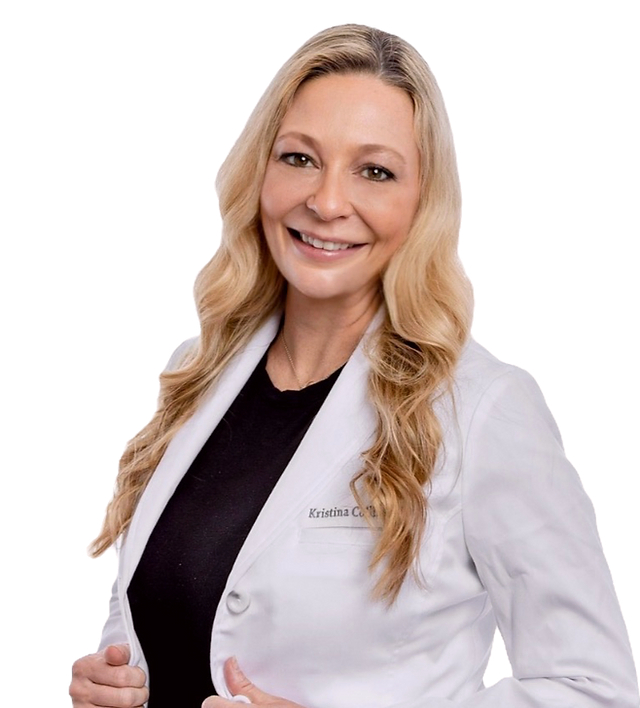
Kristina Collins, MD, is a Harvard-trained and nationally renowned leader in dermatology, celebrity dermatologist, published author of dermatology literature, and frequent international invited speaker on topics related to her expertise in dermatologic surgery, cosmetic dermatology, women’s empowerment, mindfulness, and career motivation. Her relatable yet expert dermatology knowledge has been shared in: The Wall Street Journal, ABC News, Fox News, Cosmopolitan, People, the Zoe Report, Byrdie, Pop Sugar, Women's Health, Glamour, In Style, Livestrong, USA Today, Readers’ Digest, Yahoo, CNN, Well and Good, NY Strategist, Marie Claire, and more. Dr. Collins is double board certified in Dermatology and Micrographic Dermatologic Surgery and resides in Austin, TX where she co-founded her boutique multi-site dermatology practice, Austin Skin. She is also founder and CEO of a national retail skin care and V care line, foy x Dr. Collins, launched with Free People in July 2022. foy x Dr. Collins stands out as the first dermatologist-designed brand to be powered by holistic actives alongside evidence based skincare science. Through foy, Dr. Collins created the first ever fully immersive skin care and meditation ritual worldwide, empowering others to transform their lives through a mindfulness practice during the skin care routine.
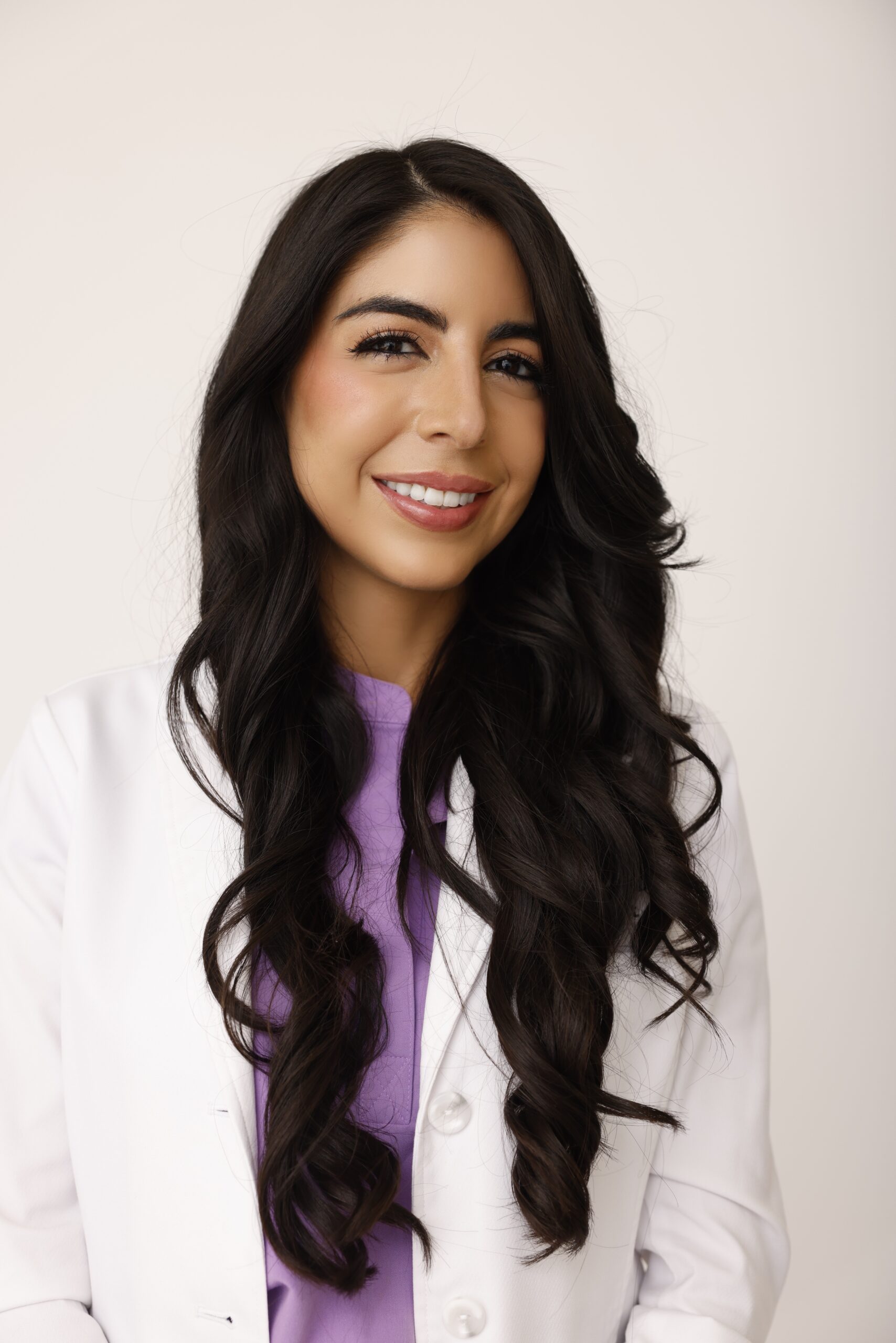
Mina Amin, MD, is a dermatologist in Los Angeles, California and is affiliated with Kaiser Permanente Los Angeles Medical Center. She received her medical degree from University of California and has been in practice between 6-10 years.
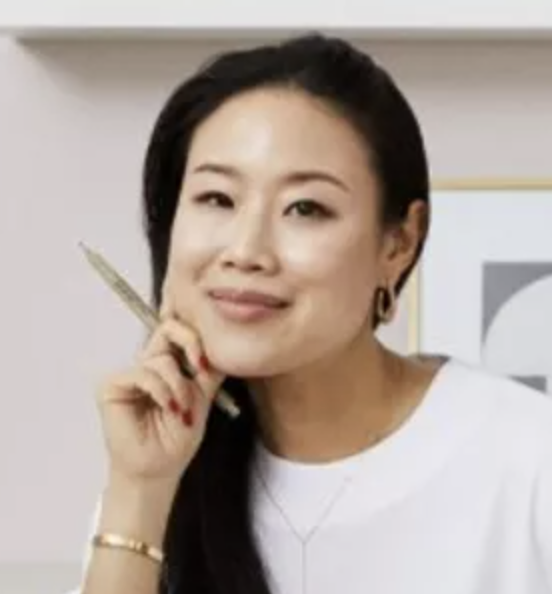
Alicia Yoon is a Korean skincare expert and the founder of Peach & Lily, a leading source and retailer for all things Korean beauty. Her acclaimed Peach & Lily skincare collection is 100% worry-free, non-toxic, and cruelty-free, using clinically-proven ingredients. Alicia travels regularly between New York City and Seoul to find the best products and most innovative skincare, and she has helped make Korean beauty the phenomenon it is in the U.S. today. An esthetician certified by spas in Korea and licensed in New York, Alicia is also a Harvard Business School graduate and an avid sheet-masker. She is on WWD's 25 Most Innovative Beauty Executives list and serves on the Cosmetic Executive Women (CEW) Board of Governors.
Stay In The Know
Get exclusive access to fashion and beauty trends, hot-off-the-press celebrity news, and more.

Marisa Petrarca is a writer and editor based in Saint Paul, Minnesota, specializing in beauty, wellness, fashion, and lifestyle. She previously served as the Senior Beauty and Fashion Editor at Grazia USA and Beauty and Style Editor at Us Weekly. Her expertise spans breaking beauty news, shopping roundups, product reviews, and explainer articles on popular topics in skin, makeup, and aesthetics. Her work has been featured in PS, Cosmopolitan, Allure, NewBeauty, InStyle, and The Zoe Report, among others. Marisa holds a bachelor's degree in English literature from Wagner College. Follow her on Instagram @Marisa Petrarca.
-
 Michelle Obama Elevates Baggy Cargo Pants With a $3,700 Tote
Michelle Obama Elevates Baggy Cargo Pants With a $3,700 ToteThe former First Lady elevated her casual outfit with sleek accessories.
By Amy Mackelden
-
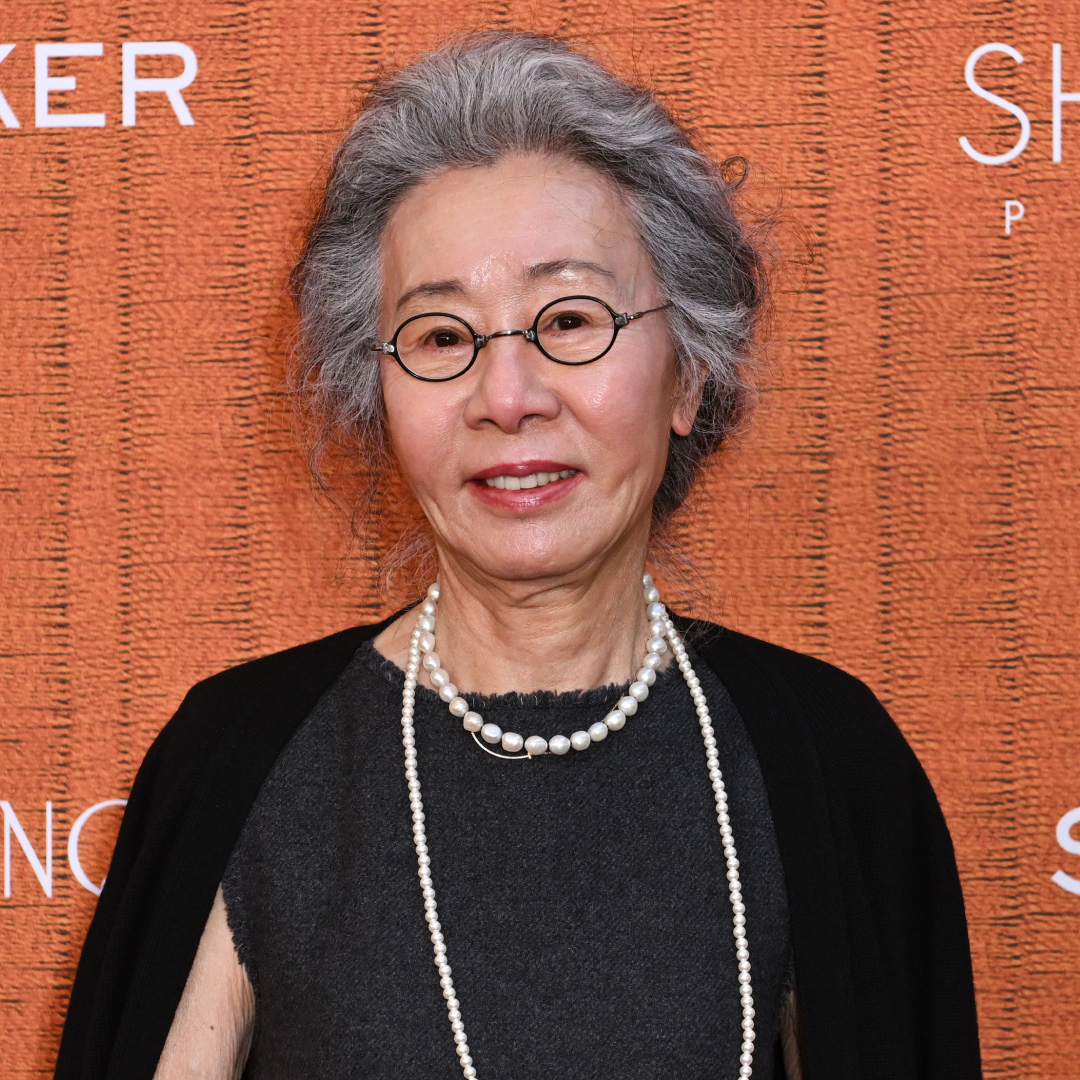 Youn Yuh-Jung Didn't Want to Make Another American Movie—Then Came 'The Wedding Banquet'
Youn Yuh-Jung Didn't Want to Make Another American Movie—Then Came 'The Wedding Banquet'The Oscar winner shares why the LGBTQ+ rom-com hit close to home and the message she hopes it sends to ''conservative'' Koreans.
By Quinci LeGardye
-
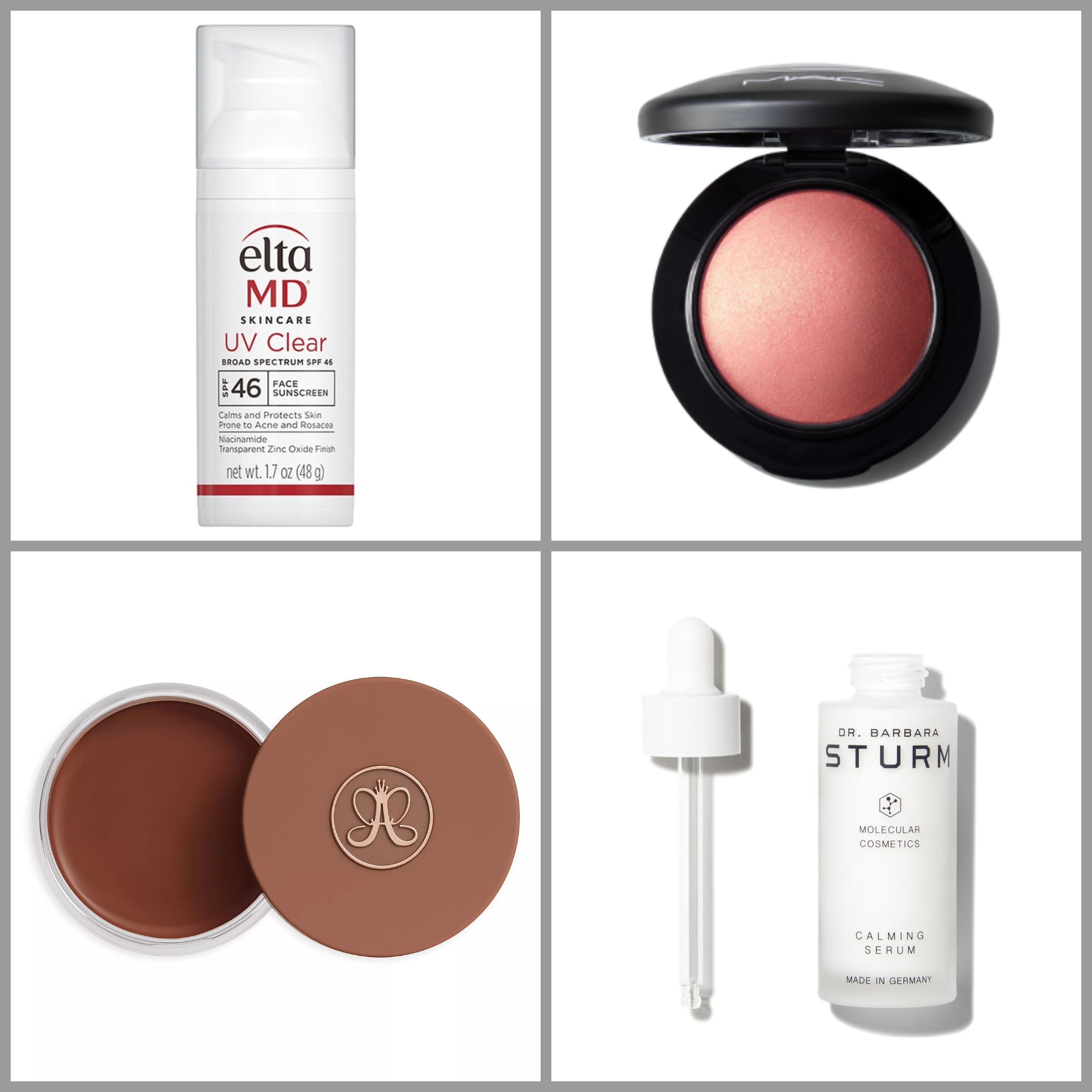 The 17 On-Sale Beauty Finds I’m Stocking Up on Ahead of Summer
The 17 On-Sale Beauty Finds I’m Stocking Up on Ahead of SummerFrom glowy blushes to the all-time best sunscreen.
By Brooke Knappenberger
-
 Here's the Skinny on Fat Grafting Skincare Treatments
Here's the Skinny on Fat Grafting Skincare TreatmentsHere's the skinny on the cosmetic treatment taking over plastic surgeons' offices from coast-to-coast.
By Fiorella Valdesolo
-
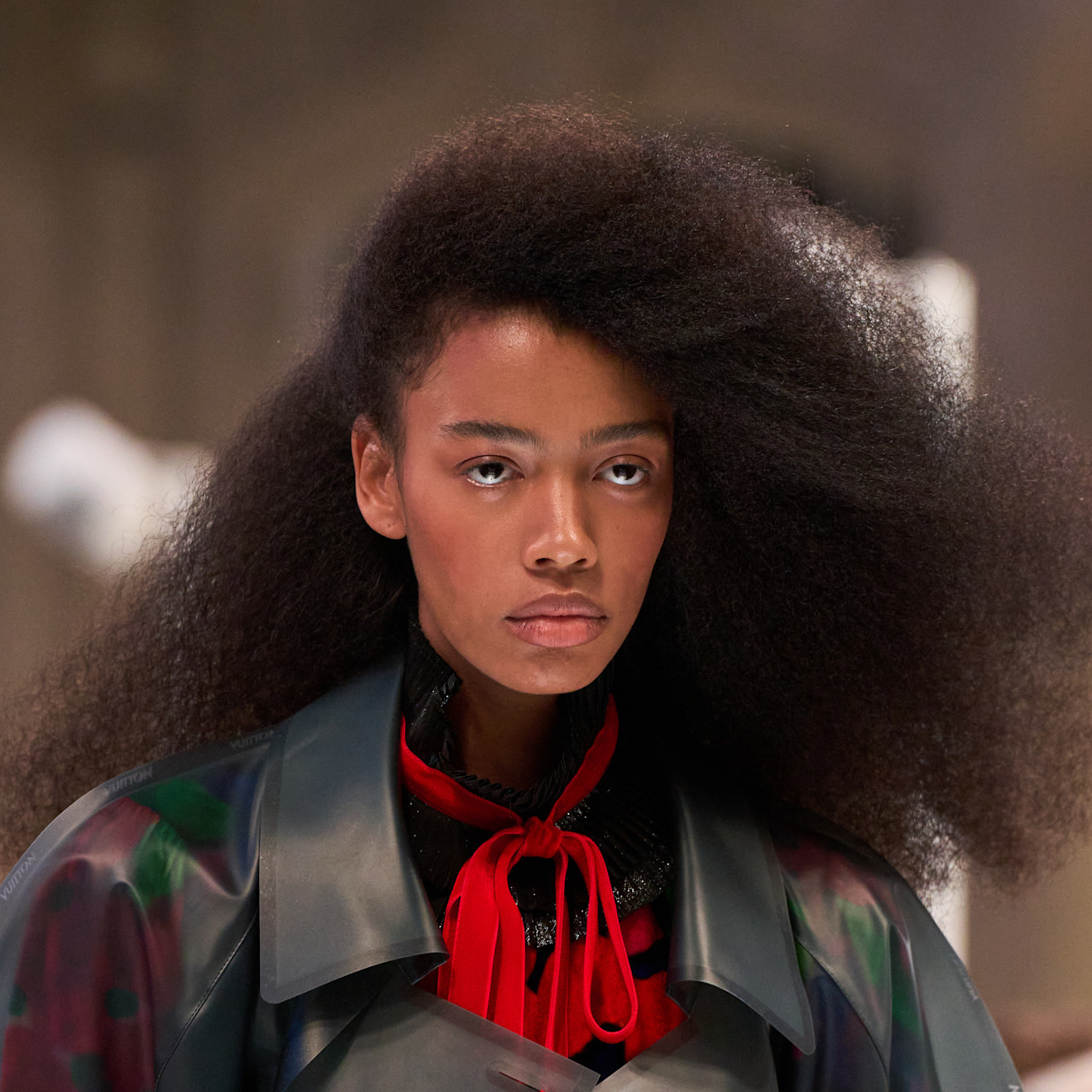 Everything You Need to Know About Marie Claire’s Skin and Hair Awards
Everything You Need to Know About Marie Claire’s Skin and Hair AwardsCould your brand survive an editor testing session?
By Ariel Baker
-
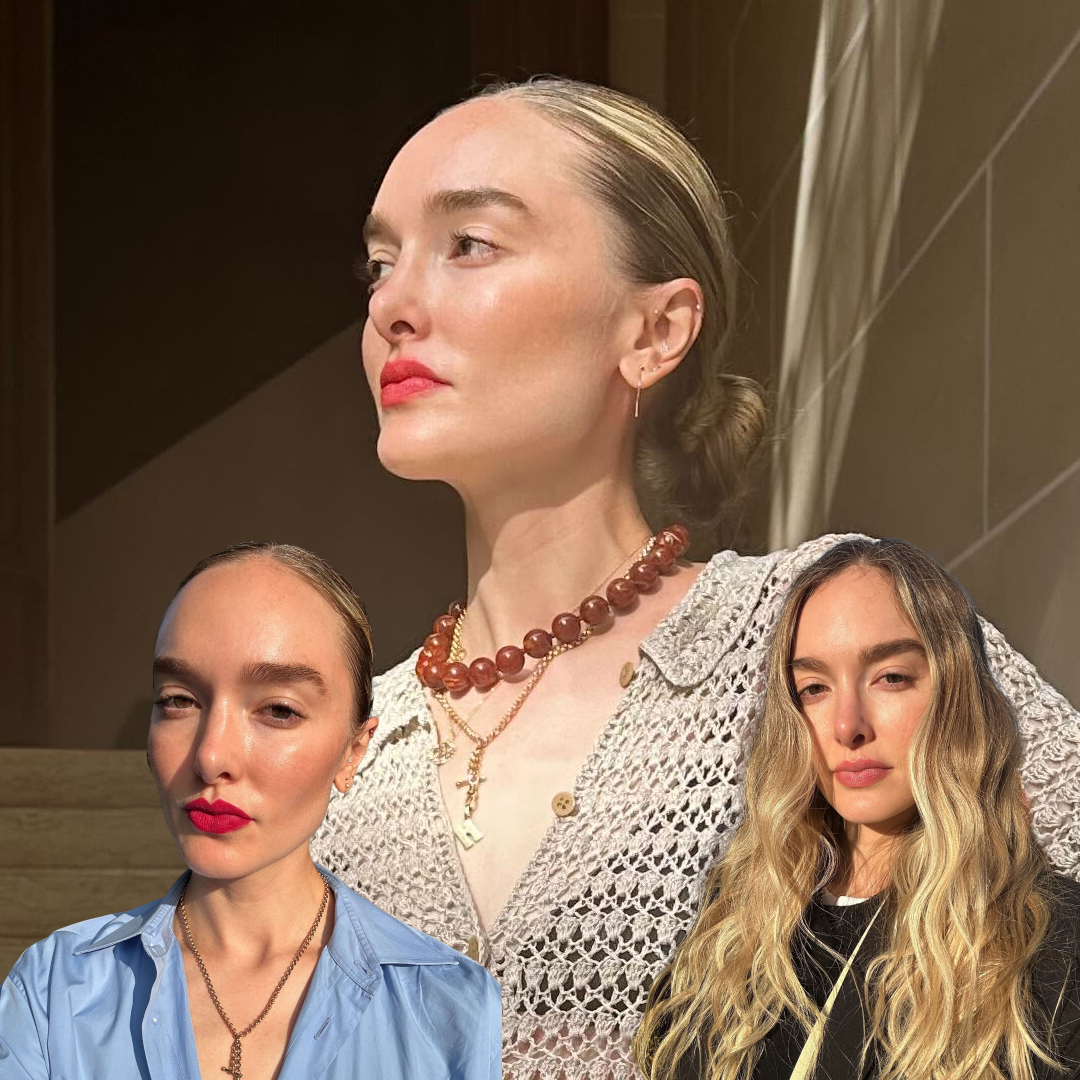 People Always Compliment My Flawless Skin—These 6 Steps Are Why
People Always Compliment My Flawless Skin—These 6 Steps Are WhyFrom sunscreen and essences to moisturizers, it's all here.
By Hannah Baxter
-
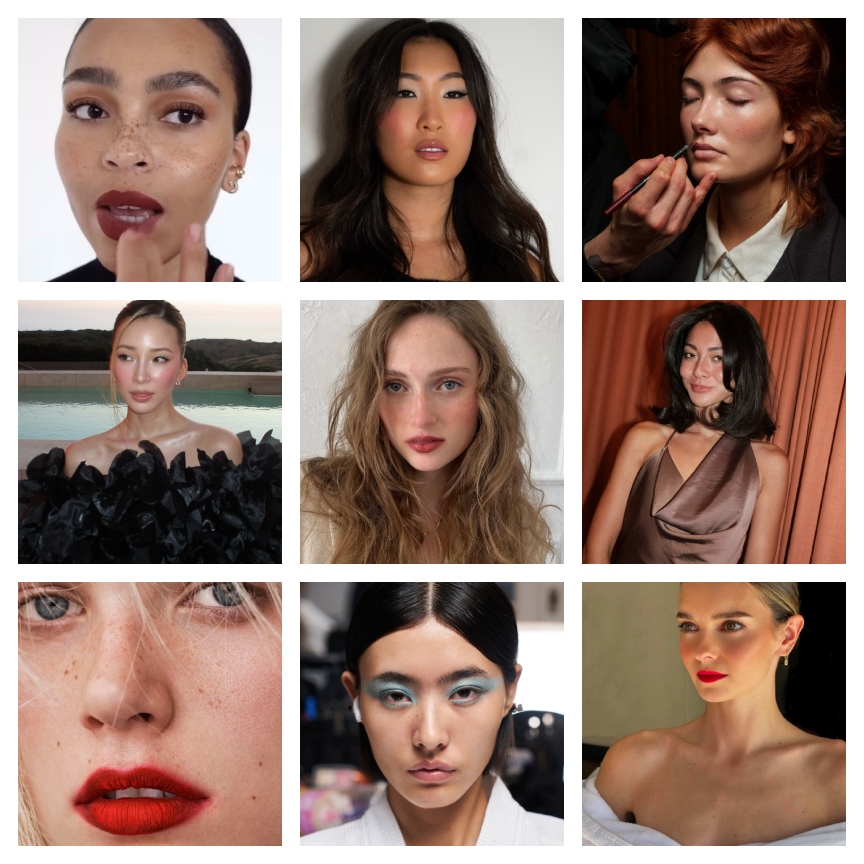 The 11 Best Spring Makeup Trends Are Sexy, Sensual, and Perfectly Luminous
The 11 Best Spring Makeup Trends Are Sexy, Sensual, and Perfectly LuminousIt's dew or die time.
By Jamie Wilson
-
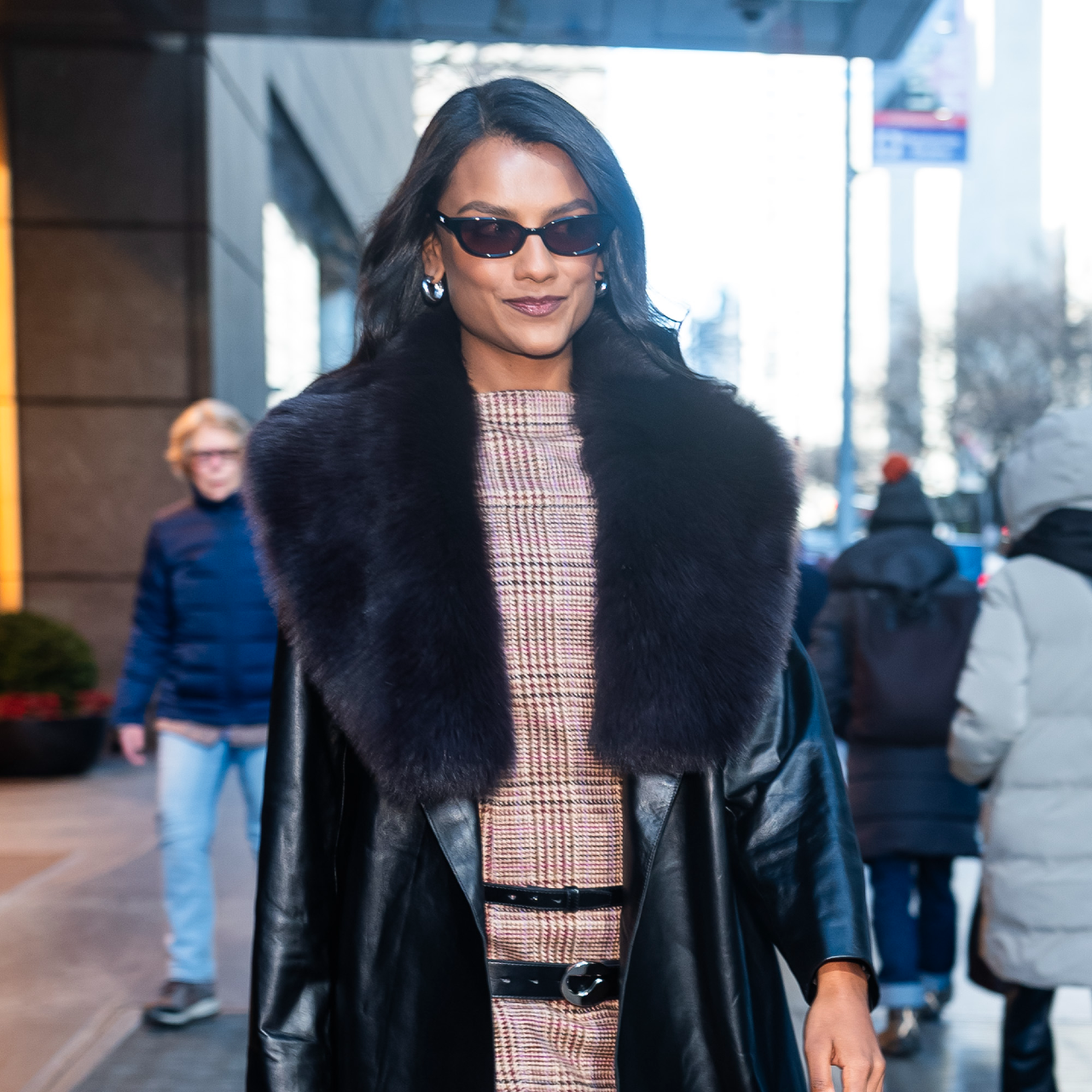 Simone Ashley’s Indie Sleaze Glam Is a Cool-Toned Dream
Simone Ashley’s Indie Sleaze Glam Is a Cool-Toned DreamThe actor was spotted in New York City looking like the epitome of cool-toned beauty.
By Ariel Baker
-
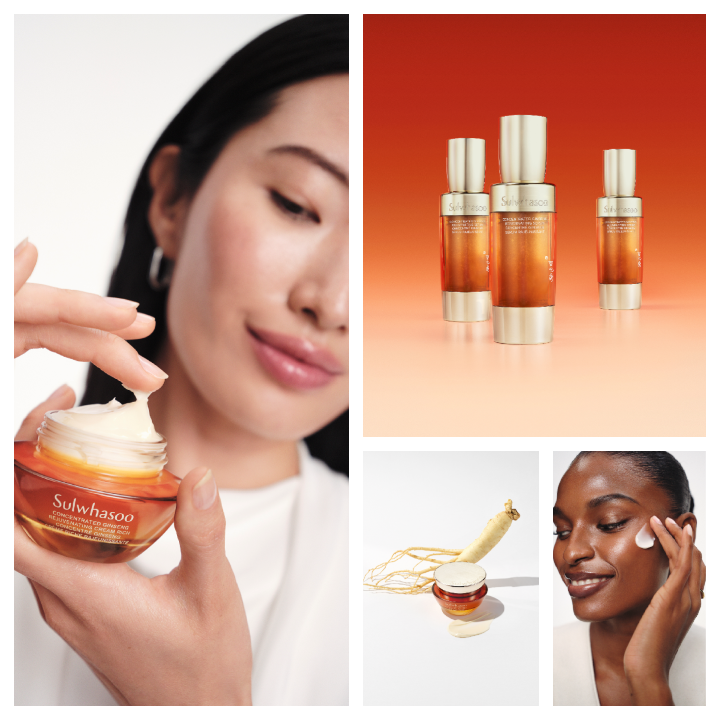 Sulwhasoo’s New Concentrated Ginseng Cream Is a Wrinkle-Erasing Time Machine for My Skin
Sulwhasoo’s New Concentrated Ginseng Cream Is a Wrinkle-Erasing Time Machine for My SkinThis Seoul-based brand is the key to plump skin.
By Samantha Holender
-
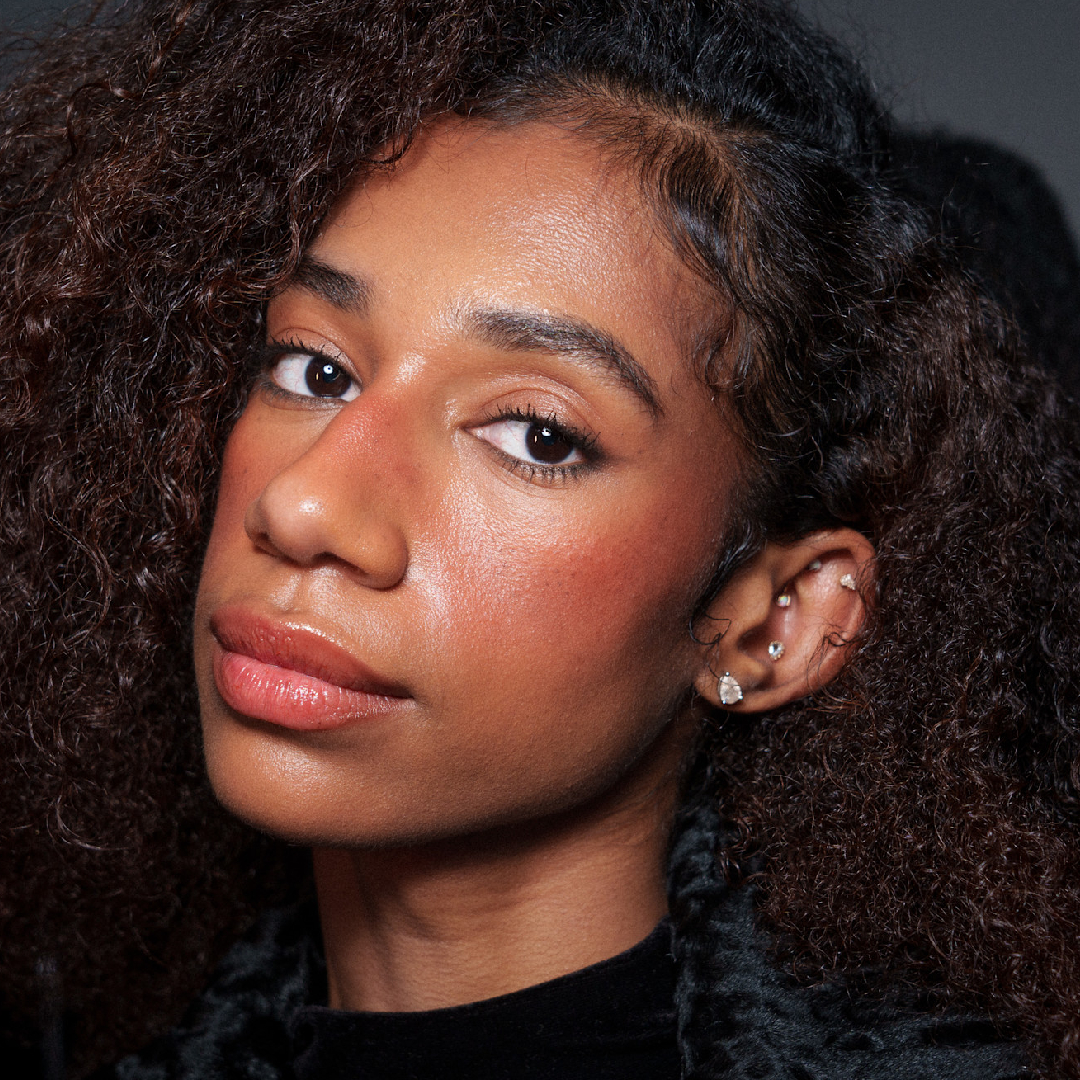 The 10 Best Hair Growth Shampoos of 2025, Tested by Editors
The 10 Best Hair Growth Shampoos of 2025, Tested by EditorsExpensive and healthy-looking hair on lock.
By Marisa Petrarca
-
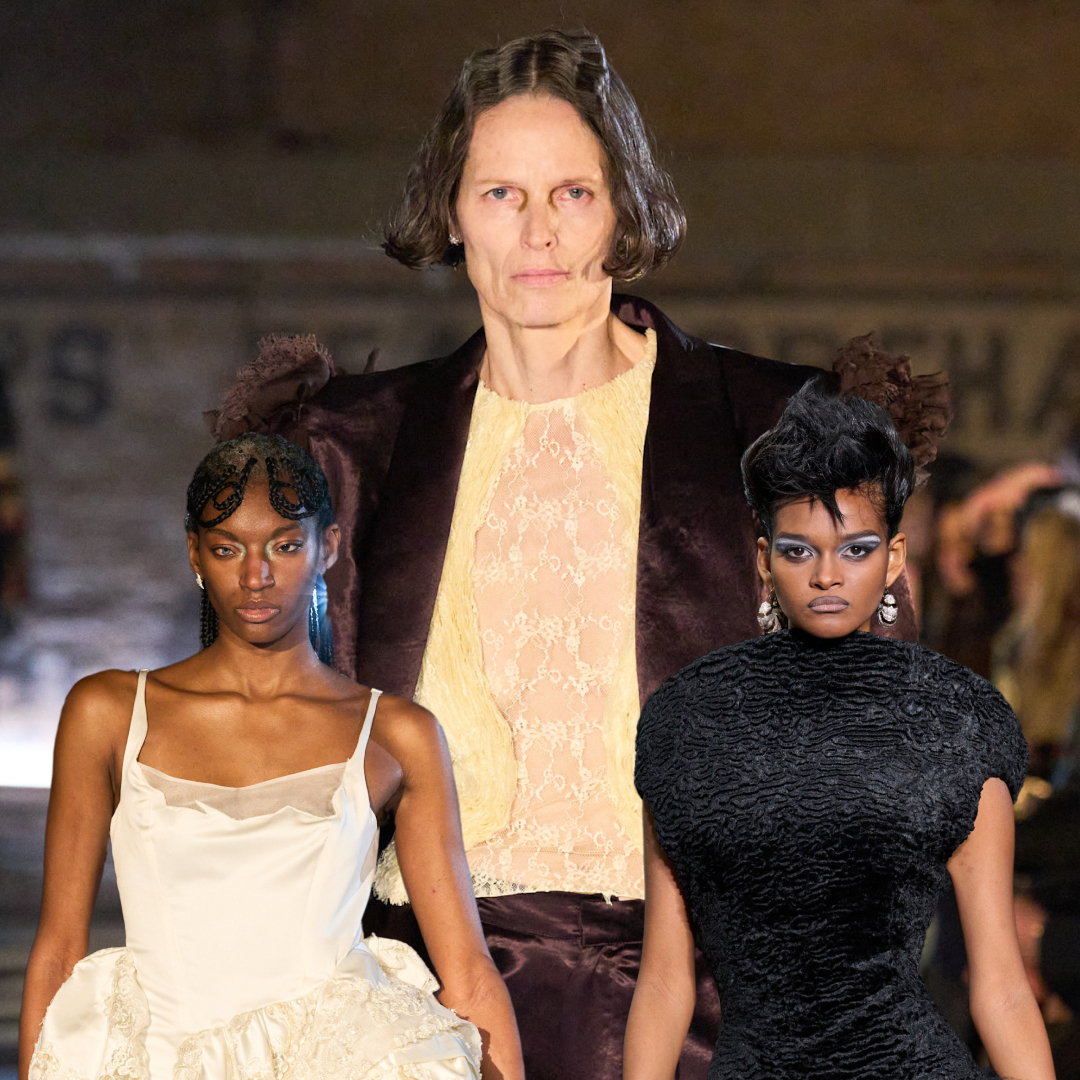 New York Fashion Week’s Fall/Winter 2025 Best Beauty Moments Are a Lesson in Juxtaposition
New York Fashion Week’s Fall/Winter 2025 Best Beauty Moments Are a Lesson in JuxtapositionThe week's best beauty looks were a maximalism master class.
By Ariel Baker